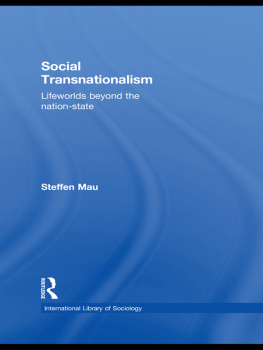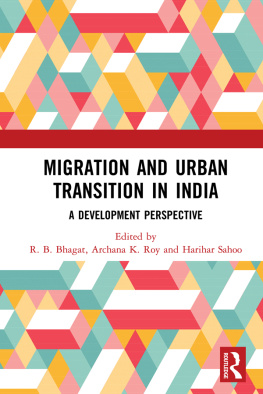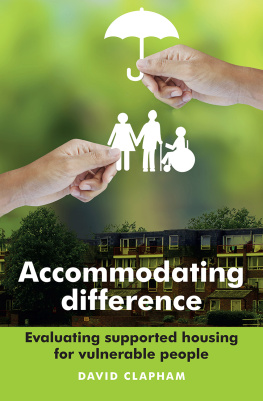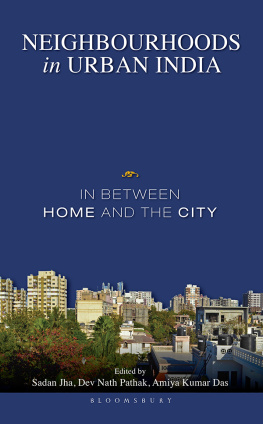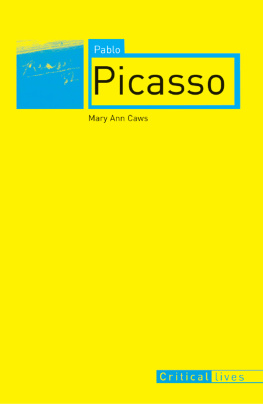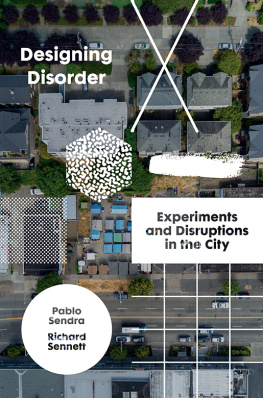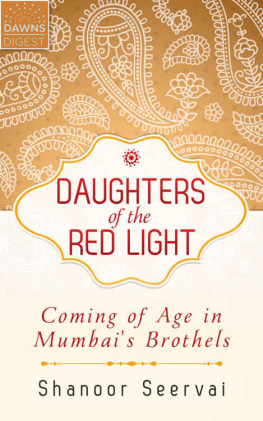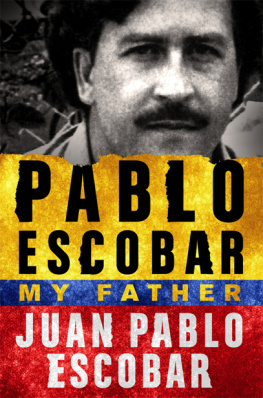
Urban Renewal in India
This book interrogates contemporary processes of neoliberal urban renewal in the Global South by studying the model of chawl redevelopment in Mumbai, India.
The model of chawl redevelopment is used to address questions surrounding contemporary urban renewal. Focusing on attempts to redevelop Mumbais central middle-class neighbourhoods, popularly known as Girgaum, into a modern downtown of a global metropolis, the author sheds light on the impact this development model has on the everyday lives of people inhabiting transformed urban environments. He examines, from an ethnographic perspective, apparently contradictory intentions of planners, investors, residents, activists and politicians. A combination of detailed and vivid ethnographic accounts and incisive theoretical arguments, the book shows that the highly contested and controversial approach of chawl redevelopment serves as an example of the manifold ideological tendencies in India today, and how they combine, clash and continuously shape each other in surprising and unpredictable ways.
Offering new insights in the topics of class dynamics in the era of globalization and neoliberalism, urban gating, sense studies, and urban politics in South Asia, this book will be of interest to academics working on South Asian Studies, Anthropology, Sociology, as well as Urban and Global Studies.
Pablo Holwitt acts as Resident Representative of the South Asia Institute of Heidelberg University, Germany at its New Delhi Branch Office, India. His research interests include urban politics, sensory ethnography and changing class formations in Indian society.
Routledge Series on Urban South Asia
Edited by Henrike Donner,
Goldsmiths, University of London, UK
The series showcases a wide range of disciplines that study processes of urbanization in globalizing South Asian cities and towns. It encompasses monographs as well as edited volumes, which address urban issues including urbane lifestyles and subcultures, urban politics and economies, as well as planning regimes and policies in the context of contemporary South Asia.
Urban Development in India
Global Indians in the Remaking of Kolkata
Pablo Shiladitya Bose
Youth, Class and Education in Urban India
The year that can break or make you
David Sancho
Urban Renewal in India
Accommodating People, Ideas and Lifeworlds in Mumbais Redeveloping Chawls
Pablo Holwitt
Urban Renewal in India
Accommodating People, Ideas and Lifeworlds in Mumbais Redeveloping Chawls
Pablo Holwitt
First published 2020
by Routledge
2 Park Square, Milton Park, Abingdon, Oxon OX14 4RN
and by Routledge
52 Vanderbilt Avenue, New York, NY 10017
Routledge is an imprint of the Taylor & Francis Group, an informa business
2020 Pablo Holwitt
The right of Pablo Holwitt to be identified as author of this work has been asserted by him in accordance with sections 77 and 78 of the Copyright, Designs and Patents Act 1988.
All rights reserved. No part of this book may be reprinted or reproduced or utilized in any form or by any electronic, mechanical, or other means, now known or hereafter invented, including photocopying and recording, or in any information storage or retrieval system, without permission in writing from the publishers.
Trademark notice: Product or corporate names may be trademarks or registered trademarks, and are used only for identification and explanation without intent to infringe.
British Library Cataloguing-in-Publication Data
A catalogue record for this book is available from the British Library
Library of Congress Cataloging-in-Publication Data
A catalog record has been requested for this book
ISBN: 978-0-367-34593-8 (hbk)
ISBN: 978-0-429-32674-5 (ebk)
Typeset in Times New Roman
by Wearset Ltd, Boldon, Tyne and Wear
Contents
This book comprises almost a decade of research work and accordingly has been shaped by numerous experiences, encounters and discussions. It is based on my PhD thesis, which I submitted at the University of Leipzig in 2018. Although it is only my name that appears on the cover of this book, working on this book has demonstrated to me the immense degree to which such an undertaking is a profoundly collective endeavour. That is why I would like to use these first pages to thank some of the large group of people who have contributed in one way or another to the making of the book that you are holding in your hands right now. Since there are definitely too many people to mention, I would like to apologize in advance to everyone I have forgotten.
I cannot overstate the ways in which the PhD thesis benefitted from the guidance and feedback of my supervisor, Ursula Rao, who helped me to sharpen my analytical focus and improve my writing. She found the perfect balance between challenging me to think about my material in fresh ways and encouraging me to thoroughly follow the paths that I eventually chose. I would also like to thank the second reviewer of the PhD thesis, Christiane Brosius, who provided many insightful suggestions to further improve the work. At Routledge, I would like to thank my editors Dorothea Schaefter and Alexandra de Brauw, as well as the Series Editor, Henrike Donner, for their help in turning the thesis into a book.
I would also like to thank Helene Basu who supervised my MA thesis and whose lectures and seminars at the University of Mnster stirred my ambition to become an anthropologist working on South Asia in the first place. During a preliminary field visit to Mumbai in 2011, Kamala Ganesh helped me to shape my research project in its very early stages. Over the course of my major field research stay in Mumbai from 2012 to 2013, my local guide Amita Bhide from the School of Habitat Studies at the Tata Institute of Social Sciences (TISS) was generous enough to share her profound expertise on urban renewal and provide me with numerous valuable contacts. At TISS, I also benefitted greatly from my discussions with Himanshu Burte, Tina Chakraborty, Ratoola Kundu, Shilpa Phadke and Abdul Shaban. Chandrashekhar Prabhu was not only one of the first people to introduce me to my main field site Girgaum, but also became one of the crucial figures in my research. I cannot thank him enough for the open and unassuming manner in which he shared his knowledge with me and enabled me to critically engage with his own work. I would also like to thank Aakash and Sayali Karkare for their willingness to cooperate on a so far unfinished, yet immensely gratifying film project during my stay in Mumbai. My main field research in Mumbai was made possible by the generous fiscal support of the German Academic Exchange Service (DAAD).
While writing up and making sense of my findings from the field, I participated in numerous highly engaged discussions in various PhD student colloquiums, initially at the Institute of Ethnology at the University of Mnster and later at the Institute of Anthropology and the Graduate School Global and Area Studies at the University of Leipzig. While many of the participants in these colloquiums provided useful inputs, I would like to particularly thank Lesley Branagan, Sara ten Brinke, Agustina Carrizo, Julia Koch, Helmar Kurz, Stefanie Mauksch, Katja Mller, Mrinal Pande, Nadine Sieveking, Annika Strauss, Antje Bcker, Boris Wille and Tracie Wilson who prepared critical and incisive comments, proofread manuscripts and generally contributed to an atmosphere of mutual respect and constructive feedback. Similarly, I would like to thank Henni Alava, Lesley Branagan, Jon Galton, Marjaana Jauhola, Ravinder Kaur, Daniel Kofahl, Sumeet Mhaskar, Maansi Parpiani, Sebastian Schellhaas and Karen Silva Torres for organizing workshops and conferences where I had the opportunity to present material from my PhD research, as well as Dan Hirslund, Matthias Middell, Katja Naumann, Nate Roberts and Samuli Schielke for acting as commentators at these events. At various stages of the research process, Jonathan Shapiro Anjaria, Lisa Bjrkman, Ian Cook, Hugo Ribadeau Dumas, Christine Durant, Lena Lhr, Megan Maruschke, Renu Modi, Nikhil Rao, Sanjay Srivastava, Raphael Susewind, Carol Upadhya and Paromita Vohra provided me with crucial information, research material and general advice that I greatly benefitted from.




